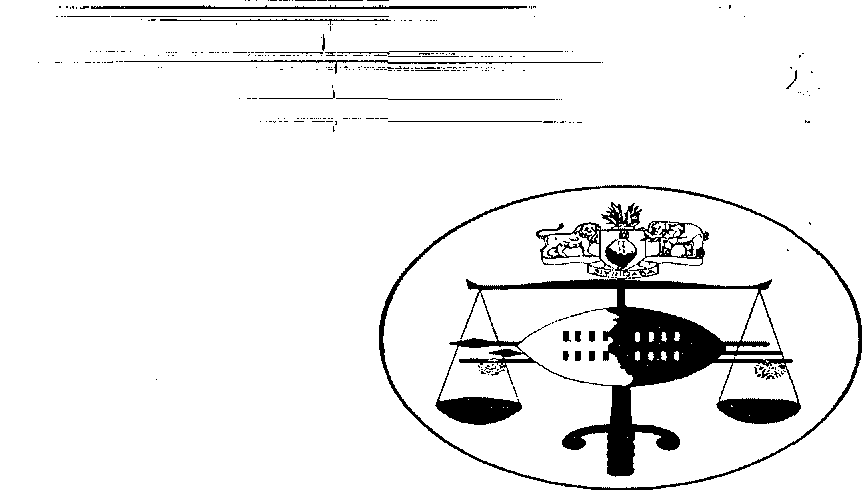
IN THE SUPREME COURT OF SWAZILAND
HELD AT MBABANE APPEAL CASE NO. 35/2009
In the matter between:
SANDILE XAVIER FRANCIS DLAMINI APPELLANT
and
BHEKIWE DLAMINI (BORN HLOPHE) RESPONDENT
CORAM : FOXCROFT, JA
EBRAHIM, JA MASUKU, AJA
FOR THE APPELLANT : M.J. MANZINI
FOR THE RESPONDENT : M. MABILA
JUDGMENT
FOXCROFT, JA
[1] This appeal concerns the issue of access to a former matrimonial home, by a separated spouse who has left
the home, where the home is still occupied by the other spouse.
[2] The applicant wife succeeded in the Court a quo in obtaining an order directing her husband (now the appellant) to allow her access to "the parties' " matrimonial home situate at Portion 204, Farm No. 2 in the urban area of Mbabane, District of Hhohho. The husband now appeals against that order.
[3] It is well established that an invariable legal consequence of marriage is the right of both parties to occupy the joint matrimonial home. As said by Sachs, J in MINISTER OF HOME AFFAIRS v. FOURIE 2006 (1) SA 524 (CC) AT 551.
"This obligation is clearly based on the premise that spouses will live together. The party who owns the home may not exclude or evict the other party from the house"
The difficulty which arises in the present situation is whether this principle continues to apply where the parties no longer occupy the matrimonial home. If it does, then the spouse who has left the home may certainly have reasonable access to her previous home. Because she no longer lives there, it would in my view, not be correct to say that she has unlimited access to the house. That would unreasonably interfere with the rights of the other spouse.
The Court a quo reached no conclusion on the disputes of fact before it, in particular the dispute as to the arrangement reached at a family meeting as to where the parties would reside during the separation. The learned judge a quo based his decision to grant access solely on the right of both parties to occupy the joint matrimonial home referred to above, holding that
"Her right to be afforded unlimited access is a legal consequence of the marriage..."
[5] The respondent on appeal, whom I shall refer to as "the wife", alleged in her founding affidavit in the Court a quo that she was married to the appellant by Swazi Law and Custom on the 28th January 1996, at Mbelebeleni, in the District of Manzini. Problems arose in 2008 and
"In a meeting between our families it was resolved that we go on 'separation' with the hope that some time apart from each other would heal the marriage".
It was further resolved in the same meeting, according to her that
"We should both vacate the matrimonial home situate at Portion 204 Farm 2 in the urban area of Mbabane, District of Hhohho."
[6] The wife then moved out of the ,home with the children of the parties and went to reside at Ezulwini. Despite the resolution taken at the family meeting, the wife alleged that her husband has refused her access to the house, even changing the locks to the doors and gate of the house. She added that
"most of my personal effects including computers and laptops are locked in the matrimonial home to which I have no access"
and which she desperately needed to carry out her consultancy work. The retrieval of these personal effects was clearly behind her application for access.
[7] Appellant (the husband) answered these allegations by averring that there was no resolution taken at the family meeting as alleged by his wife. What had happened, according to him, was that she had made such a suggestion but it had not been accepted. The families had
"resolved that she moves out of the house and that I find her accommodation, which I did and it was near Mbabane Clinic, which she refused and decided to find her own"
The husband admitted that he had changed the locks in view of the acrimonious relationship which had developed and the mutual loss of trust. He added that his wife had spent a number of days coming into the house to collect her things, and that there was no need for her to return.
In paragraph 12 of his answering affidavit the husband dealt with what appears to be the crux of the matter. The computers and laptops claimed do not, he alleged, belong to his wife but to his company Protronics Networking Corporation. Proof of ownership is annexed. Appellant agreed to provide her with any personal property of hers still in the house, and requested a list of these items. He added that she did not need to enter the house, because they "could end up hurting each other if she keeps on coming to the house and insults me as she usually does".
In her Replying Affidavit, the wife claimed that her husband
"is very much aware as to how my laptop got to be used by him ... as he knows very well that he was trying to conceal incriminatory evidence contained in his own desktop which information I will not disclose now ..."
This is new matter which should not appear in a replying affidavit and cannot assist her in the present proceedings.
[10] It is clear from this evidence that there are irreconcilable disputes of fact on the papers. The first is whether it was agreed that both parties should leave the matrimonial home. The second is the ownership of the computers and laptops to which the wife lays claim. It appears from her Replying Affidavit that she does not dispute that the company Protronics Networking Corporation owns the particular laptop which she maintains is hers, and she also did not dispute her husband's allegation in paragraph 11 of his answering affidavit that
"The computers and laptops she is now claiming to be hers do not belong to her, they belong to my company, Protronics Networking Corporation, proof is annexed hereto marked Al, A2 and A3".
[11] For the wife to have succeeded in her application for access, she would have had to establish a legal right to enter the former matrimonial home. It will be remembered that she did not claim the return of her own possessions in the Notice of Motion. If she had established on the papers before the court a quo that it had been agreed that both husband and wife were to leave the former matrimonial home, then the husband would have had no greater right to possession of that home than she. Her difficulty is that that allegation was not proved on the papers. On the papers, and in accordance with the PLASCON EVANS principle, endorsed by this Court on many occasions, the husband's version had to prevail. On that version, he was entitled to remain in the house during the separation. Naturally, his wife would have been entitled to remove those possessions which she could show were hers from her former home. But that was not what she sought in her Notice of Motion. Her claim was for immediate access only. If she had claimed the return to her of certain goods, and been able to prove her right to those goods, the position would have different and I see no legal reason why the husband could have prevented their return. Indeed he offered on the papers to do just that. Some form of reasonable access, related to the removal of her goods would have been appropriate if she had established a right to those goods. No such right was established since the Court a quo did not rule on this dispute of fact.
If the respondent wife had proved her version of the family agreement then, a fortiori, would the house no longer have been the matrimonial home. Both parties would have moved out and it would have become a place where no party had the unlimited right to reside, and no party would have had the right to unlimited access. Both parties would presumably have retained house keys in such a situation and then been able to go. to the property to retrieve personal possessions.
[13] In my view the learned judge a quo erred in holding that the respondent wife had unlimited access to the matrimonial home. It was, on either version, no longer the matrimonial home. To establish her possible right to take possession of goods in the former matrimonial home, the wife had to prove her right to those goods. As I have already said, she made no claim for the return of goods (only for access), and there was an irreconcilable dispute of fact on the papers as to the ownership of these goods. Evidence was required to resolve this dispute, but no application to lead evidence was made, on the papers before us.
[14] Accordingly,
1) the appeal must be allowed. Mr. Manzini stated from the Bar that he would be content with an order that each party pay their own costs of the appeal, and it will be so ordered.
Further,
2) the order of the Court a quo is substituted with the following:
"The application is dismissed with costs"
i FOXCROFT f fDGE OF APPEAL
agree
a.m. ebrahim judge of appeal
i agree
t.s. masuku
act^ngIjudge of appeal
Delivered in open court at Mbabane on this qjD[/j day of November, 2009.